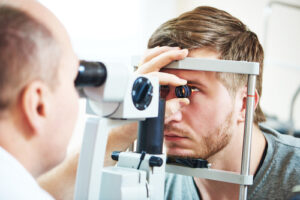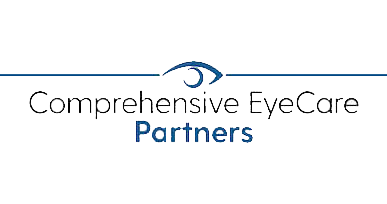Did you know that many people only see their eye doctor for about twenty minutes? For many patients, this appointment is something that only occurs once a year.
That’s why it’s essential to make your time with your eye doctor count by asking any questions you may have. Being involved in your care can help you keep your eyes healthier.
Keep reading for 8 questions your eye doctor wishes you’d ask at your next appointment.
1. Do I Have Different Treatment Options?
If you’ve been recently diagnosed with a vision problem or an eye condition, it’s necessary to work together and have an open line of communication with your eye doctor. Does the cost of treatment fall outside of what you can afford?
Your ophthalmologist might not be able to tell the financial impact of a treatment. Be upfront with your eye doctor about your financial situation.
Other times, your eye doctor may hold back from recommending a specific treatment out of concern for your budget. If you want to know all available options for treatment, have them explain everything so you’re aware of all options before making any choices.
If the cost of treatment is too prohibitive, they may be able to recommend a similar option that is more affordable and equally effective.
2. Am I a Good Vision Correction Procedure Candidate?

Do you wear glasses or contact lenses? Your eye doctor is the perfect person to talk to if you’re interested in learning about a vision correction procedure like LASIK.
While LASIK is a highly effective procedure, it’s not for everyone. You can only undergo the procedure if you’re a good LASIK candidate.
Your eye doctor at Evergreen Eye Center can schedule a LASIK consultation to determine if you’re a good candidate. If you don’t qualify, they can go over LASIK alternatives like the EVO Visian ICL or PRK, which you may be a better fit for.
3. Why are My Eyes So Dry?
Many people experience dry eyes. They may be due to a blowing AC, your heater, and allergies, among other reasons.
Dry eye symptoms may last for only a short while and then disappear. But your ophthalmologist needs to know if your dry eyes don’t improve or get better.
Tell them if your eyes feel persistently dry. Having dry eyes leads to uncomfortable and frustrating symptoms that can affect your day-to-day.
With a proper diagnosis, your eye doctor will understand the cause of your dry eyes and how best to alleviate the symptoms and manage your condition.
4. Can I Try At-Home Treatment Options?

Many websites have home remedies for all kinds of eye and vision problems. However, consult your eye doctor before making any significant changes.
Your ophthalmologist will assess whether the options you’re considering are safe. There may be things you can do to improve your eye and vision health.
Asking your eye doctor this question will start a conversation that might result in healthier habits. If a home remedy is not a good idea, they can give you a safer alternative to try.
5. When Should I Schedule My Next Appointment?
Don’t forget to ask your eye doctor about when to schedule your next appointment to see them. Regular appointments will help keep your eyes healthy.
Everyone’s schedule for seeing their ophthalmologist differs. When you should see your ophthalmologist depends on your age, medical history, and any existing vision conditions.
6. What is My Risk of Developing Glaucoma?

Glaucoma is one of the leading causes of permanent blindness in the world. Eye doctors wish their patients would talk about this to ensure they are aware of this vision condition.
Glaucoma is often called the secret thief of sight because it has virtually no symptoms until vision loss has already occurred. For this reason, talk to your ophthalmologist about your risk of developing glaucoma.
They will provide crucial information about developing glaucoma. Your family health history, lifestyle, some health conditions, and medications can increase your risk for the condition.
Even though there’s no cure for glaucoma, early detection and treatment can aid in controlling the sight-stealing disease and prevent total vision loss.
7. Why is My Prescription Still Changing?
It’s normal for your prescription to change, but you may wonder why it hasn’t stabilized yet. There are multiple reasons why your vision could be changing.
While some might be due to the normal aging process, others are a tell-tale sign that something is off. Don’t be afraid to discuss with your ophthalmologist why this is happening.
Your eye doctor will explain what’s happening and adjust your prescription to ensure your focus is where it should be. But if it’s a concerning eye disease, your eye doctor will get to the bottom of the problem and provide the most appropriate treatment.
8. Why Do You Need to Dilate My Eyes?
There’s a reason why your eye doctor is dilating your eyes. If you don’t know why you can ask them the reason they are dilating your eyes and what they are potentially looking for.

Asking prepares you for the dilation and anything you need to prepare. For example, if you’ll be having your eyes dilated, you can carry a pair of sunglasses with you. You may also need to arrange to have someone pick you up and drive you home after your appointment.
Protect Your Sight
No matter how well you see, it’s vital to prioritize seeing your eye doctor. It’s the only way to ensure the health of your eyes and vision.
Do you have questions for your eye doctor? Be proactive and schedule an appointment at Evergreen Eye Center today!

